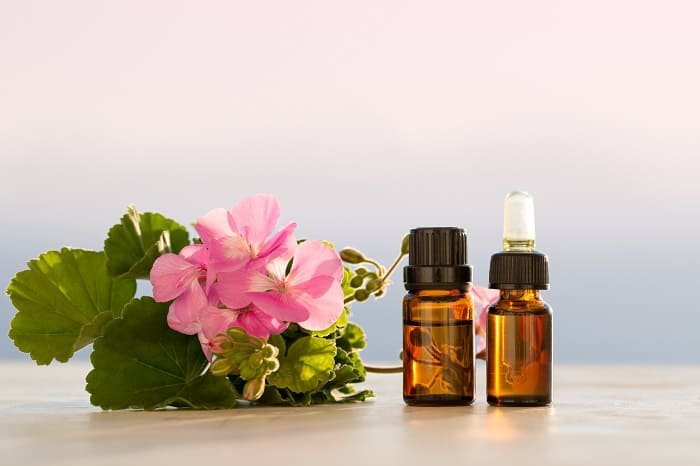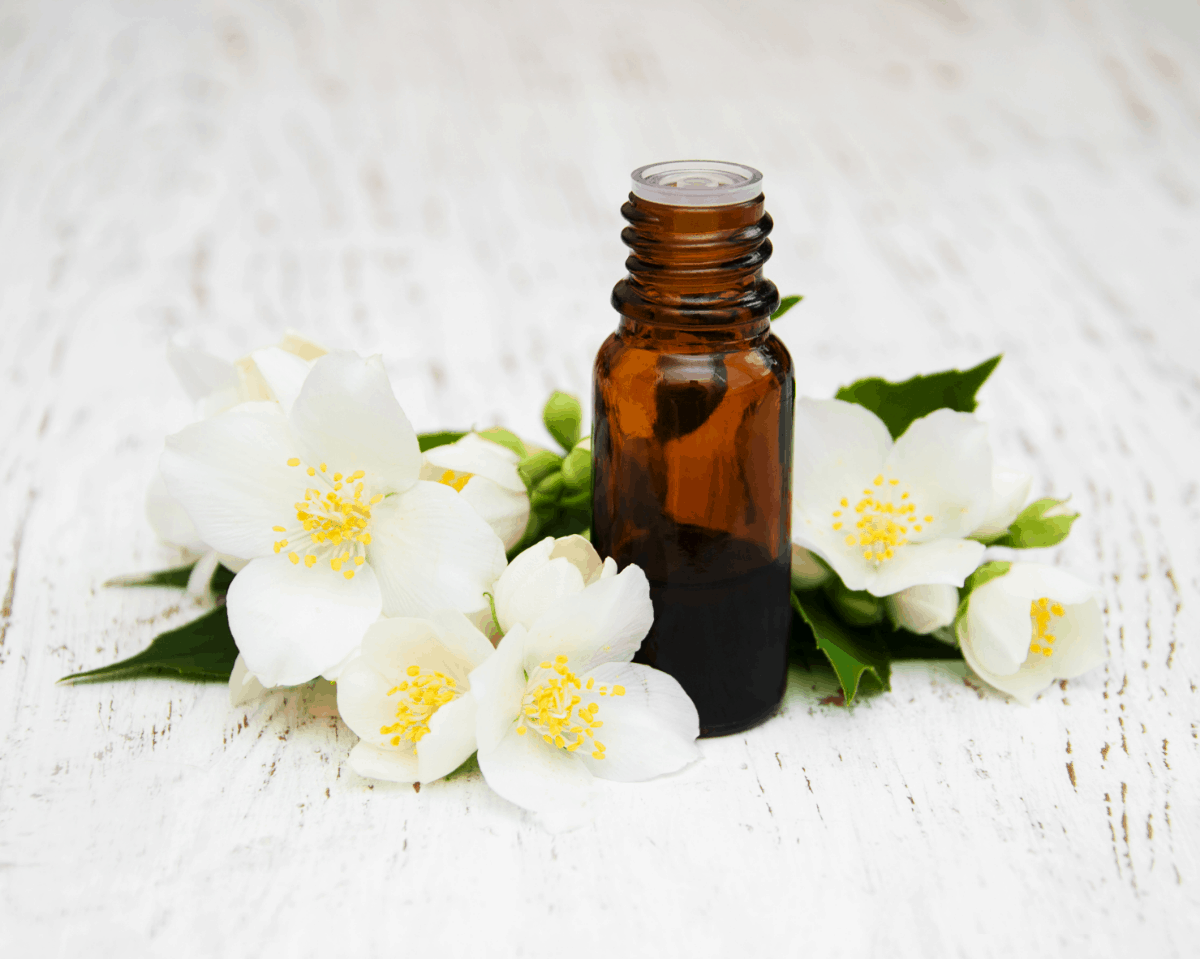Last Updated on October 8, 2024
Sunburns. I bet you squick every time you hear that word. You may have experienced a sunburn or seen a friend turn to a red hulk and in pain. Whichever the case, sunburns are very uncomfortable and unpleasant to the eyes. Tanning at the beach is fun and relaxing, but without proper sun protection, you end up going home with a sunburn instead of a tan.
This raises the question, what essential oils are good for sunburns and how do you use them? I have compiled a list of some essential oils that can help you heal sunburns. I have never experienced one and would never like to, and that’s why I think this piece will help you heal sunburns the next time you go tanning outside.
Table of Contents
Best Essential Oils Suitable for Sunburns
I have only come across a few studies that have explored the benefits of essential oils on sunburns. The majority of the studies conclude that the benefits are experienced only when essential oils are applied as soon as possible. The studies also recommend that you should avoid using essential oils on sensitive skin, near organs regulated by hormones such as the mouth, eyelids, breasts, and genitals.
Vitamin C Essential Oil
Ascorbic acid offers several benefits that help reduce several symptoms of sunburns and improve the healing time.
Benefits of vitamin c essential oil:
- Acts as an anti-inflammatory
- Protects against UVB and UVA rays
- Improves the production of collagen
- Corrects pigmentation issues
Vitamin c can cause warmth, redness, and skin flushing.
Vitamin E Essential Oil
Vitamin e helps reduce sunburns by:
- Absorbs harmful UV rays
- Protects skin pigmentation
- Acts as an antioxidant
- Moisturizes the skin
- Acts as an anti-inflammatory agent
Essential oils containing vitamin e can cause minor irritations.
Geranium Essential Oil
The geranium shrub provides several ingredients that act as:
- Anti-bacterial agents
- Anti-microbial agents
- Anti-cancer agents
- Anti-inflammatory agents

These properties are useful for healing sunburns. Geranium oil can also act as a nerve tonic and a sedative which helps in reducing pain caused by sunburns.
Geranium may cause skin irritation.
Peppermint Essential Oil
The menthol in peppermint has benefits that help ease sunburns, which include:
- Anti-fungal
- Anti-bacterial
- Anti-inflammatory
- Anti-septic
- Vasoconstrictor
Using menthol may cause some minor skin irritations.
Lavender Essential Oil
Lavender essential oil boosts immunity and promotes skin regeneration.
It also has other properties used to treat sunburns, which include:
- Anti-fungal
- Anti-bacterial
- Anti-inflammatory
- Sedative
You might experience some side effects after using lavender essential oil such as chills, rashes, nausea, fever, or headaches.
Eucalyptus Essential Oil
Like the other essential oils, eucalyptus essential oil acts as an:
- Anti-bacterial agent
- Anti-inflammatory agent
- Anti-oxidant
- Anti-proliferative agent
You should not take eucalyptus orally. Also, using the essential oil might cause side effects like rashes, drowsiness, or breathing problems in children. However, side effects rarely occur.
Tea Tree Essential Oil
Tea tree extracts were used by our great-great-grandparents to treat skin conditions. We can still use the extracts but in essential oil forms.
Extracts used to treat sunburns are:
- Anti-inflammatory
- Anti-bacterial
- Anti-fungal
- Immune boosters
- Anti-viral
However, despite its advantages, studies show tea tree essential oil has several severe side effects such as eczema, redness, burning skin, itchiness, dry and scaling skin, weakness, unusual blood changes, stomach upsets, and blistering. The side effects are rare, but you should consult a doctor if you notice anything unusual after using the oil.
Chamomile Essential Oil
Chamomile has been used since the early times as a medicinal herb that could treat several illnesses. It has a calming effect, acts as an anti-inflammatory, and promotes wound healing. Some people experience full-body allergic reactions, so it should be used carefully.
How to Use Essential Oils
If you are not careful, your quest to heal that uncomfortable sunburn might end up worsening the situation and opening a door of severe infections. Too much of essential oils can cause some serious allergic reactions.
Here is how you can use essential oils to treat sunburns:
- Mix the essential oil well with other ingredients.
- Use in small quantities; essential oils cause skin irritations, especially when used alone. Mix at most three to four drops of your essential oil with a base before applying.
- Carry out a patch test. Some people have sensitive skin that reacts aggressively to any allergen. If you suspect you have ultra-sensitive skin, apply a drop of diluted essential oil on a patch of skin to make sure you won’t have a serious allergic reaction.
Probable Risks and Complications Involved in Using Essential Oils
As you have already read, using essential oils might come with some allergic reactions and other side effects. When using essential oils to treat sunburns, keep in mind the following:
- Essential oils do not have recognized guidelines on how to apply them. Currently, there is no official research that supports essential oils as possible ingredients for treating any health condition. Using essential oils is considered entirely voluntary, and therefore, you should be cautious when using them.
- Most essential oils are highly concentrated plant extracts and should be diluted before use.
- The production, marketing and quality regulation of essential oils are not monitored by the FDA (Food and Drug Administration).
- Essential oils are not safe for pregnant women, nursing women, infants, and children.
- Some types of essential oils make the skin weak and at risk of damage from UV rays.
If you notice any unusual reactions or severe sunburn symptoms, consult your doctor as soon as possible. Sunburns might get infected and cause serious complications.
Sunburns are very uncomfortable and do not look good on your tanned skin. The above essential oils can treat minor sunburns but should be used carefully. They should be diluted before use, and most importantly, a patch test must be done to make sure your skin is not sensitive.
Consult a doctor if you have serious complications or if you suspect your sunburn might have an infection.
If you have any questions, drop them in the comment section, and I will be happy to answer them.

Barbara is an environmental activist and sustainability advocate who loves living green and sustainable. She firmly believes in reducing her carbon footprint and has been making great strides towards achieving this goal. Barbara is a vegan and avid recycler and has been actively involved in community gardens and other green initiatives. She is passionate about spreading awareness about the importance of living in a sustainable and eco-friendly manner. Barbara is always looking for ways to make a difference in her community and beyond. She is a huge advocate for preserving nature and the planet for future generations.

